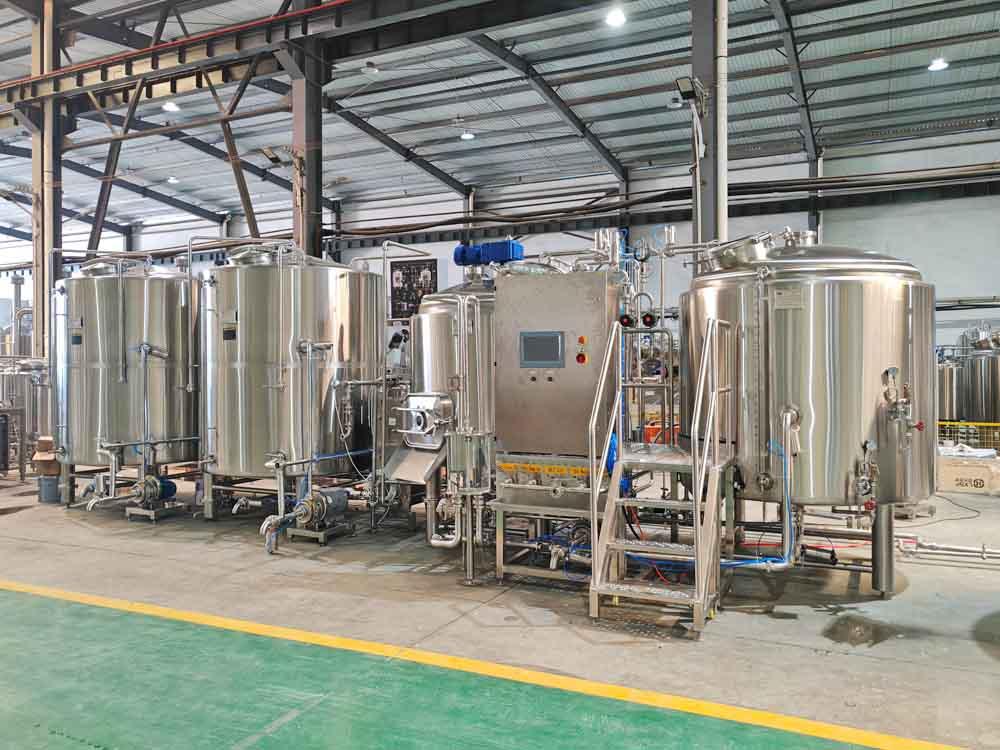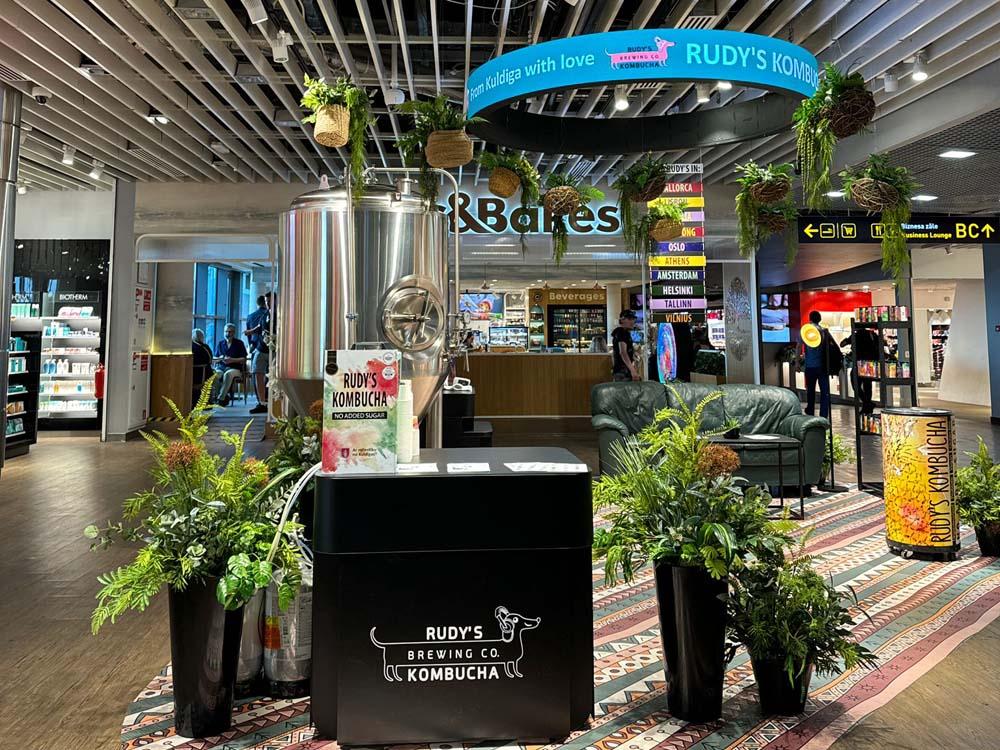Are the bubbles in your beer made from sustainable CO2
- Jan 06, 2022
- 87
- tiantai
One of the most essential components in brewing is the same one destroying our planet, carbon dioxide. In commercial brewing, the carbon dioxide created during the yeast fermentation step is released into the atmosphere, only for brewers to have to buy commercial CO2 to forcibly carbonate that beer in a later step of the process.
But there is a more sustainable solution: carbon dioxide capture allows brewers to prevent CO2 from going into the atmosphere and make money off the gas by injecting it into their products. Until now, that sustainable and money-saving system was too large and expensive for anyone but the industry titans.
With its carbon dioxide capture technology, Earthly Labs is working to expand access. The technology is the size of a double door refrigerator with tubes connecting it to brewery vats, giving the 8,000 craft brewers in the United States the same advantage.
"The notion that we could deliver [the system] on a forklift and plug it in and on the same day be capturing and scrubbing CO2 is just a radical idea for the brewery world," said Amy George, founder and CEO of Earthly Labs.
Carbon capture technology could provide a version of natural carbonation at a fraction of the time by grabbing the naturally produced gas for use later.
Earthly Labs’ system captures the CO2 produced from the yeast fermentation step in brewing. It then dries and purifies the moist molecules before converting the CO2 to a liquid for easier storage. Then breweries can pump the carbon dioxide back into the beer for carbonation or use it to move the liquid around on their bottling lines.
Breaking away from norms
Most beer produced in the United States is forcibly carbonated by injecting pressurized CO2 into the liquid. It can take up to two weeks to naturally carbonate beer, according to George, so few breweries do it for economic reasons. Carbon capture technology could provide a version of natural carbonation at a fraction of the time by grabbing the naturally produced gas for use later.

Buying commercial CO2 to pump into beers is a norm for most breweries in the U.S. It lowers the turn around time for carbonation to a few days. But CO2 prices have been on the rise, especially early in the pandemic. George heard from brewers experiencing 50 to 100 percent price hikes on commercial CO2, usually created as a byproduct of ethanol production. When gas prices plummeted in March due to a drop in driving, traveling and commutes, some ethanol plants just closed down, directly decreasing the amount of CO2 in the market.
Denver Beer Co. co-founder Charlie Berger saw an immediate benefit after installing an Earthly Labs system in December.
"Some small brewers have been on allocation [because of the shortages]," Berger said. "We really are buffered from a lot of that. We have our own source."
That is, some brewers weren't getting their entire orders fulfilled, something suppliers have written into contracts. According to Berger some brewers had to stop production because they got only about 70 percent of their orders.
Some craft brewers might even be able to capture all the CO2 they need using the Earthly Labs technology and never rely on the commercial version again. With its own CO2 capture, Denver Beer Co. was able to cut costs by about half, not only on the CO2 but also the deposits for canisters. It is on pace to capture as much as 100,000 pounds of CO2 this year, about half its annual needs.
Still, others might be able to capture excess and decide to sell it on the market. In true Colorado spirit, Denver Beer Co. sold some of its CO2 captured to The Clinic, a cannabis grow-house that uses CO2 to stimulate plant growth.
Being able to get this sustainable technology into the hands of smaller, more agile businesses creates the opportunity for more collaborations and more carbon sequestration.
"My philosophy is that the smaller we can get the solutions, the more accessible they are to more people, and the faster we can deploy it," George said.
On the beer side, Berger called the technology one of the holy grails towards sustainability in the craft beer space.
That’s champagne sustainability for a beer budget.
Derrick
Sales Manager
[email protected]
Tiantai Beer Equipment
But there is a more sustainable solution: carbon dioxide capture allows brewers to prevent CO2 from going into the atmosphere and make money off the gas by injecting it into their products. Until now, that sustainable and money-saving system was too large and expensive for anyone but the industry titans.
With its carbon dioxide capture technology, Earthly Labs is working to expand access. The technology is the size of a double door refrigerator with tubes connecting it to brewery vats, giving the 8,000 craft brewers in the United States the same advantage.
"The notion that we could deliver [the system] on a forklift and plug it in and on the same day be capturing and scrubbing CO2 is just a radical idea for the brewery world," said Amy George, founder and CEO of Earthly Labs.
Carbon capture technology could provide a version of natural carbonation at a fraction of the time by grabbing the naturally produced gas for use later.
Earthly Labs’ system captures the CO2 produced from the yeast fermentation step in brewing. It then dries and purifies the moist molecules before converting the CO2 to a liquid for easier storage. Then breweries can pump the carbon dioxide back into the beer for carbonation or use it to move the liquid around on their bottling lines.
Breaking away from norms
Most beer produced in the United States is forcibly carbonated by injecting pressurized CO2 into the liquid. It can take up to two weeks to naturally carbonate beer, according to George, so few breweries do it for economic reasons. Carbon capture technology could provide a version of natural carbonation at a fraction of the time by grabbing the naturally produced gas for use later.

Buying commercial CO2 to pump into beers is a norm for most breweries in the U.S. It lowers the turn around time for carbonation to a few days. But CO2 prices have been on the rise, especially early in the pandemic. George heard from brewers experiencing 50 to 100 percent price hikes on commercial CO2, usually created as a byproduct of ethanol production. When gas prices plummeted in March due to a drop in driving, traveling and commutes, some ethanol plants just closed down, directly decreasing the amount of CO2 in the market.
Denver Beer Co. co-founder Charlie Berger saw an immediate benefit after installing an Earthly Labs system in December.
"Some small brewers have been on allocation [because of the shortages]," Berger said. "We really are buffered from a lot of that. We have our own source."
That is, some brewers weren't getting their entire orders fulfilled, something suppliers have written into contracts. According to Berger some brewers had to stop production because they got only about 70 percent of their orders.
Some craft brewers might even be able to capture all the CO2 they need using the Earthly Labs technology and never rely on the commercial version again. With its own CO2 capture, Denver Beer Co. was able to cut costs by about half, not only on the CO2 but also the deposits for canisters. It is on pace to capture as much as 100,000 pounds of CO2 this year, about half its annual needs.
Still, others might be able to capture excess and decide to sell it on the market. In true Colorado spirit, Denver Beer Co. sold some of its CO2 captured to The Clinic, a cannabis grow-house that uses CO2 to stimulate plant growth.
Being able to get this sustainable technology into the hands of smaller, more agile businesses creates the opportunity for more collaborations and more carbon sequestration.
"My philosophy is that the smaller we can get the solutions, the more accessible they are to more people, and the faster we can deploy it," George said.
On the beer side, Berger called the technology one of the holy grails towards sustainability in the craft beer space.
That’s champagne sustainability for a beer budget.
Derrick
Sales Manager
[email protected]
Tiantai Beer Equipment




